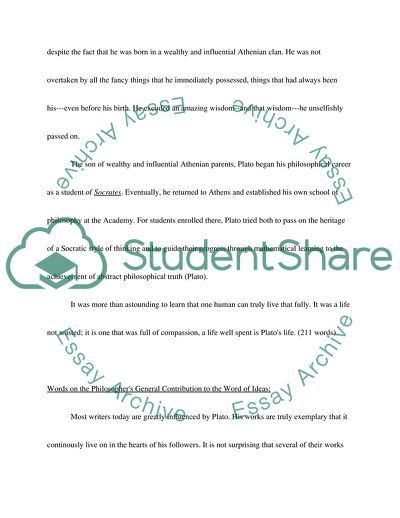Cite this document
(Personal Thoughts on Plato: His Writing and Influence Essay, n.d.)
Personal Thoughts on Plato: His Writing and Influence Essay. Retrieved from https://studentshare.org/philosophy/1713001-philosophyy-essay
Personal Thoughts on Plato: His Writing and Influence Essay. Retrieved from https://studentshare.org/philosophy/1713001-philosophyy-essay
(Personal Thoughts on Plato: His Writing and Influence Essay)
Personal Thoughts on Plato: His Writing and Influence Essay. https://studentshare.org/philosophy/1713001-philosophyy-essay.
Personal Thoughts on Plato: His Writing and Influence Essay. https://studentshare.org/philosophy/1713001-philosophyy-essay.
“Personal Thoughts on Plato: His Writing and Influence Essay”. https://studentshare.org/philosophy/1713001-philosophyy-essay.


